 The Federal Reserve has a problem with inflation which they haven’t seen since the 1980s. To combat that, they have recently raised rates so aggressively that some banks have been caught with their pants down, unable to provide their promised rate of return and suffering from a public lack of confidence and a run on withdrawals. This has led to high-profile closures that have revealed how intricately laced, fragile, and interwoven all our money is.
You may have heard that the “Era of Easy Money is done.” What that means is interest rates were held at 0 or near 0 for so long that banks and investors could borrow trillions of dollars, risk it in as risky of investments as they wanted to, and could also count on the Fed bailing them out if those investments went South. The highest Fed Funds rate was 20% in 1979 and 1980. The lowest was absolute 0 in 2008 and 2020. At 20%, even bankers count their pennies and are cautious about investing or loaning money. Zero percent is a raucous party where anything goes. Between those two extremes is waking up with the hangover of all hangovers. That’s where we are now, with the interest rate having only climbed to 4.85%, but they’ve done that in less than a year after being artificially held to zero for two years. We have barely opened our eyes the morning after the party.
As we open our eyes, we will find that many of the rich have turned a quick profit on their losses by selling short and leaving the Fed holding the bill. As we open our eyes further, we will see a riot in the streets outside called the Ukraine war, where rival gangs–Russian, American, European, Middle Eastern, and Chinese–are all trying to kill each other and gain control. When fully awake, we will find that our just-in-time delivery systems are suffering, our aging infrastructure is crumbling, and none of our credit cards work. When we check our bank balances, we see that we are in one of the longest Bear markets we have ever experienced, and the wealthy have been heading for the exits with all our money well before the party ended. There’s no Uber that’s going to pick us up and whisk us safely home. We have a long and dangerous walk ahead of us if we want to get home. And there’s a little matter of the check before you can go home. You see, the cost of all that careless spending and reckless investing has been passed to you from the bankers through the Fed and to you, the consumer and taxpaying worker.
THE CHECK
The Federal Reserve has a problem with inflation which they haven’t seen since the 1980s. To combat that, they have recently raised rates so aggressively that some banks have been caught with their pants down, unable to provide their promised rate of return and suffering from a public lack of confidence and a run on withdrawals. This has led to high-profile closures that have revealed how intricately laced, fragile, and interwoven all our money is.
You may have heard that the “Era of Easy Money is done.” What that means is interest rates were held at 0 or near 0 for so long that banks and investors could borrow trillions of dollars, risk it in as risky of investments as they wanted to, and could also count on the Fed bailing them out if those investments went South. The highest Fed Funds rate was 20% in 1979 and 1980. The lowest was absolute 0 in 2008 and 2020. At 20%, even bankers count their pennies and are cautious about investing or loaning money. Zero percent is a raucous party where anything goes. Between those two extremes is waking up with the hangover of all hangovers. That’s where we are now, with the interest rate having only climbed to 4.85%, but they’ve done that in less than a year after being artificially held to zero for two years. We have barely opened our eyes the morning after the party.
As we open our eyes, we will find that many of the rich have turned a quick profit on their losses by selling short and leaving the Fed holding the bill. As we open our eyes further, we will see a riot in the streets outside called the Ukraine war, where rival gangs–Russian, American, European, Middle Eastern, and Chinese–are all trying to kill each other and gain control. When fully awake, we will find that our just-in-time delivery systems are suffering, our aging infrastructure is crumbling, and none of our credit cards work. When we check our bank balances, we see that we are in one of the longest Bear markets we have ever experienced, and the wealthy have been heading for the exits with all our money well before the party ended. There’s no Uber that’s going to pick us up and whisk us safely home. We have a long and dangerous walk ahead of us if we want to get home. And there’s a little matter of the check before you can go home. You see, the cost of all that careless spending and reckless investing has been passed to you from the bankers through the Fed and to you, the consumer and taxpaying worker.
THE CHECK
 There are several early indicators that we are heading into a deep recession we will look at here. The foremost of these indicators is inflation. Unless you’re rolling in money, you’ve noticed that you are paying more for everything from a bag of lettuce to a gallon of gas. Inflation hit a 40-year high on June 15th of last year, and it has continued its upward trajectory, only beginning to level off and sink a bit this year. But, has it really? Unlike the inflation of the past, however, high prices are also being driven by supply scarcity and supply chain disruption from a world war combined with price manipulation from multiple suppliers. OPEC+ nations cut production, Russian supply is shut off, and for-profit fossil fuel companies sell their product to the highest bidders overseas. All of that causes fossil fuel prices to surge.
Greedflation can also occur when a company forecasts higher material or transportation costs in the future, so they raise prices pre-emptively. Or, they see their competitors raising prices, so they raise prices even though their production, supply, and demand are all stable. So even though the chart may show a leveling off or even a decline in inflation, that doesn’t mean you, the consumer, are seeing any price declines. It simply means the rate of speed for these increases has slowed a bit. You still hold the hefty check in hand.
Unlike previous generations, we rely almost entirely on a just-in-time supply chain and delivery system. We saw what could happen to that when a container ship got stuck in the Suez Canal, COVID locked us in our homes, and a World War broke out. We also see the fragility of this after every natural disaster, every infrastructure failing where the maintenance and replacement parts can not be found, and after any substantial cyberattack shuts down or ransomware our critical systems. All of these contribute to ever-larger inflation increases, but they are unique to this time in history. Because they are so unique, the period of Great Inflation at nearly 15% during the 80s will be remembered fondly from where we are heading. The origins of the Great Inflation were policies that allowed for excessive growth in the supply of money—Federal Reserve policies. They didn’t have all of these added “unique” compounding factors.
These unique compounding factors could be called a series of financial crises punctuating the contraction. If you know your history, you might recognize that explanation of national economic health decline from the longest and deepest downturn in the history of the United States and the modern industrial economy–the Great Depression. Unlike then, America is perhaps too divided for any New Deal to lift us out of our depression, so get ready now.
THE GRIFT
There are several early indicators that we are heading into a deep recession we will look at here. The foremost of these indicators is inflation. Unless you’re rolling in money, you’ve noticed that you are paying more for everything from a bag of lettuce to a gallon of gas. Inflation hit a 40-year high on June 15th of last year, and it has continued its upward trajectory, only beginning to level off and sink a bit this year. But, has it really? Unlike the inflation of the past, however, high prices are also being driven by supply scarcity and supply chain disruption from a world war combined with price manipulation from multiple suppliers. OPEC+ nations cut production, Russian supply is shut off, and for-profit fossil fuel companies sell their product to the highest bidders overseas. All of that causes fossil fuel prices to surge.
Greedflation can also occur when a company forecasts higher material or transportation costs in the future, so they raise prices pre-emptively. Or, they see their competitors raising prices, so they raise prices even though their production, supply, and demand are all stable. So even though the chart may show a leveling off or even a decline in inflation, that doesn’t mean you, the consumer, are seeing any price declines. It simply means the rate of speed for these increases has slowed a bit. You still hold the hefty check in hand.
Unlike previous generations, we rely almost entirely on a just-in-time supply chain and delivery system. We saw what could happen to that when a container ship got stuck in the Suez Canal, COVID locked us in our homes, and a World War broke out. We also see the fragility of this after every natural disaster, every infrastructure failing where the maintenance and replacement parts can not be found, and after any substantial cyberattack shuts down or ransomware our critical systems. All of these contribute to ever-larger inflation increases, but they are unique to this time in history. Because they are so unique, the period of Great Inflation at nearly 15% during the 80s will be remembered fondly from where we are heading. The origins of the Great Inflation were policies that allowed for excessive growth in the supply of money—Federal Reserve policies. They didn’t have all of these added “unique” compounding factors.
These unique compounding factors could be called a series of financial crises punctuating the contraction. If you know your history, you might recognize that explanation of national economic health decline from the longest and deepest downturn in the history of the United States and the modern industrial economy–the Great Depression. Unlike then, America is perhaps too divided for any New Deal to lift us out of our depression, so get ready now.
THE GRIFT
 If you are the Central Bank, you can seemingly create money out of thin air. You can loan money at no interest, which results in investors and super-wealthy investors putting billions into risky investments to turn what they hope is a quick profit. You can raise interest rates to make borrowing money harder for banks and investors. Between the raising or lowering of interest rates, whole banks sometimes get ground down to insolvency when they can no longer make their minimal interest payments and promised debt obligations. We saw that with Silicon Valley Bank this year.
When high-risk loans fail, the Fed purchases those loans and makes the banks stable. That doesn’t mean the banks will loan out that injected money. In the past, they have turned around and bought up those same bonds created to solve those high-risk failures. Banks pay their executives millions of dollars in bonuses, even as the bank burns down around them. As if magic, all of that insolvency, debt, and financial hardship passes right over the executives of these banking and investment institutions, back to the Fed, and eventually to you in the form of higher prices for everything and a collapsing economy. When your company can’t get the money they need, it may downsize your position, slow production, or be forced to stop manufacturing altogether.
It is easy to believe that banks built this country, but they didn’t. People did. It’s easy to think that the Federal Reserve can solve our economy’s woes, but it can’t. When the Federal Bank shifted its policy from a central bank that manages the currency to the primary engine of economic growth, the power went from democratic institutions to the federal government. What does that all mean? It means all our nation’s economic eggs are in a single basket. It means the coming recession will be different and worse than anything we have seen in the past. It will dramatically change a generation of Americans. The nation has relied upon the Fed to protect us over the last two decades, but that protection is running out.
YOUR NEW REALITY
If you are the Central Bank, you can seemingly create money out of thin air. You can loan money at no interest, which results in investors and super-wealthy investors putting billions into risky investments to turn what they hope is a quick profit. You can raise interest rates to make borrowing money harder for banks and investors. Between the raising or lowering of interest rates, whole banks sometimes get ground down to insolvency when they can no longer make their minimal interest payments and promised debt obligations. We saw that with Silicon Valley Bank this year.
When high-risk loans fail, the Fed purchases those loans and makes the banks stable. That doesn’t mean the banks will loan out that injected money. In the past, they have turned around and bought up those same bonds created to solve those high-risk failures. Banks pay their executives millions of dollars in bonuses, even as the bank burns down around them. As if magic, all of that insolvency, debt, and financial hardship passes right over the executives of these banking and investment institutions, back to the Fed, and eventually to you in the form of higher prices for everything and a collapsing economy. When your company can’t get the money they need, it may downsize your position, slow production, or be forced to stop manufacturing altogether.
It is easy to believe that banks built this country, but they didn’t. People did. It’s easy to think that the Federal Reserve can solve our economy’s woes, but it can’t. When the Federal Bank shifted its policy from a central bank that manages the currency to the primary engine of economic growth, the power went from democratic institutions to the federal government. What does that all mean? It means all our nation’s economic eggs are in a single basket. It means the coming recession will be different and worse than anything we have seen in the past. It will dramatically change a generation of Americans. The nation has relied upon the Fed to protect us over the last two decades, but that protection is running out.
YOUR NEW REALITY
 The dream of a soft landing was always more of a dream than a reality. The facts are that there are too many unpredictable elements in the economy. Many of those I mentioned earlier. If any natural disaster, supply chain failure, or an ever-increasing war or political disaster pushes inflation higher and the job rate down, stagflation and an even deeper recession are all but inevitable. But what does that mean to you? Enough of this high-level forecast of our collectively dismal future. Let’s look at precisely what this will mean for you and what you can do about it.
UNEMPLOYMENT or STAGNANT WAGES
The dream of a soft landing was always more of a dream than a reality. The facts are that there are too many unpredictable elements in the economy. Many of those I mentioned earlier. If any natural disaster, supply chain failure, or an ever-increasing war or political disaster pushes inflation higher and the job rate down, stagflation and an even deeper recession are all but inevitable. But what does that mean to you? Enough of this high-level forecast of our collectively dismal future. Let’s look at precisely what this will mean for you and what you can do about it.
UNEMPLOYMENT or STAGNANT WAGES
 So far, the only good economic news is that the jobless rate has remained low, though that may be changing. Let’s be honest, though, even when the economy was chugging along, wages have been stagnant since 1979. These two combined are just rough for the average worker in decent economies. In a downward economy, it’s terrible news. As companies change their projections and outlook for the future, as the supply of resources slows or becomes challenged, and as it becomes more difficult to maintain the high profits of the past, they will look to lay off, downsize, scale back production, and cut worker pay. So even as the cost of everything continues to rise, you have less money in your pocket to buy anything.
COSTS & PRICES RISE
So far, the only good economic news is that the jobless rate has remained low, though that may be changing. Let’s be honest, though, even when the economy was chugging along, wages have been stagnant since 1979. These two combined are just rough for the average worker in decent economies. In a downward economy, it’s terrible news. As companies change their projections and outlook for the future, as the supply of resources slows or becomes challenged, and as it becomes more difficult to maintain the high profits of the past, they will look to lay off, downsize, scale back production, and cut worker pay. So even as the cost of everything continues to rise, you have less money in your pocket to buy anything.
COSTS & PRICES RISE
 In this time of uncertainty, the costs of making and transporting anything continue to rise. This is translated into the price, both real and perceived. The “real” is the actual costs going up, and the “perceived” is that imaginary Greedflation I spoke about earlier. So, just when you think things couldn’t be more expensive, expect them to go up in price even further for a long time to come.
SOCIAL & POLITICAL STRIFE
In this time of uncertainty, the costs of making and transporting anything continue to rise. This is translated into the price, both real and perceived. The “real” is the actual costs going up, and the “perceived” is that imaginary Greedflation I spoke about earlier. So, just when you think things couldn’t be more expensive, expect them to go up in price even further for a long time to come.
SOCIAL & POLITICAL STRIFE
 The wealth inequities and the government’s failure to protect and insulate its citizens always result in social and political strife. Politics become even more divisive as some call for government assistance or bailouts, and others demand the government not interfere while blaming the opposition or offering no clear solution themselves. On top of that, Unions push for their share of the profits for their members. They fight for higher wages and better working conditions. Crime and homelessness also increase as people are suddenly left with little to nothing of what they once had.
WHAT CAN YOU DO?
The wealth inequities and the government’s failure to protect and insulate its citizens always result in social and political strife. Politics become even more divisive as some call for government assistance or bailouts, and others demand the government not interfere while blaming the opposition or offering no clear solution themselves. On top of that, Unions push for their share of the profits for their members. They fight for higher wages and better working conditions. Crime and homelessness also increase as people are suddenly left with little to nothing of what they once had.
WHAT CAN YOU DO?
 As dark an image as that might portray, there are ways you can rise above it all and endure. There’s no single great solution but a series of little things you can do, and there certainly isn’t going to be a Central Bank or government that will ride in and rescue you. And let me say this before we jump into actionable steps you can implement now: you do not have to be a victim. The decisions you make today will define your future. Let’s cover a few practical things to do.
FOOD
As dark an image as that might portray, there are ways you can rise above it all and endure. There’s no single great solution but a series of little things you can do, and there certainly isn’t going to be a Central Bank or government that will ride in and rescue you. And let me say this before we jump into actionable steps you can implement now: you do not have to be a victim. The decisions you make today will define your future. Let’s cover a few practical things to do.
FOOD
 First, get local with your supply. The more removed you are from the global supply chain that feeds the big box stores and grocery chains, the easier it will be for you when those fail. Grow some of what you eat, source as local as possible, and cook your own food. Did you know that just ten companies control almost every large food and beverage brand worldwide? Don’t put your faith in just ten companies that they will keep prices down and produce food even as their profits nosedive. Don’t expect the American farmer to rescue you either, as massive agribusinesses have replaced many. Securing a steady, localized, self-generated, or self-prepared food source for yourself is the chief means to endure a massive economic downturn.
WATER
First, get local with your supply. The more removed you are from the global supply chain that feeds the big box stores and grocery chains, the easier it will be for you when those fail. Grow some of what you eat, source as local as possible, and cook your own food. Did you know that just ten companies control almost every large food and beverage brand worldwide? Don’t put your faith in just ten companies that they will keep prices down and produce food even as their profits nosedive. Don’t expect the American farmer to rescue you either, as massive agribusinesses have replaced many. Securing a steady, localized, self-generated, or self-prepared food source for yourself is the chief means to endure a massive economic downturn.
WATER
 The economic downturn we face will be further complicated by drought and flood. Even as the western U.S. receives massive amounts of rain, hydroelectric lakes, and aquifers remain at low levels. This means water insecurity will continue through this decade of financial decline. If you are in a part of the country receiving too much rain, snow, and precipitation, that can be a problem too. Additionally, we have seen train derailments that have devastated entire communities and rendered their water toxic. Have stored water to get you through crises and have the means to collect, treat, and filter water should those crises last longer than anyone would expect.
SHELTER
The economic downturn we face will be further complicated by drought and flood. Even as the western U.S. receives massive amounts of rain, hydroelectric lakes, and aquifers remain at low levels. This means water insecurity will continue through this decade of financial decline. If you are in a part of the country receiving too much rain, snow, and precipitation, that can be a problem too. Additionally, we have seen train derailments that have devastated entire communities and rendered their water toxic. Have stored water to get you through crises and have the means to collect, treat, and filter water should those crises last longer than anyone would expect.
SHELTER
 Every massive economic downturn is accompanied by foreclosures and people being forced to move from their homes and seek other accommodations. Paying your home down more aggressively and paying off any equity line of credit are good ways to build a better shelter. I’m not a financial adviser, but I don’t have to be to tell you that the economic times we are heading into will mean higher interest rates and the tightening of credit. If you are barely keeping a roof over your head, it will get worse as the economy slides further down. I bought my first home in 2009 right after the housing market crash and let me tell you, I drove into neighborhoods where literally every other house had a foreclosure sign in their front yard. It was surreal to see. While I don’t think we’re heading into a similar situation, just don’t allow yourself to risk the roof over your head.
LEVEL UP YOUR SKILLS
Every massive economic downturn is accompanied by foreclosures and people being forced to move from their homes and seek other accommodations. Paying your home down more aggressively and paying off any equity line of credit are good ways to build a better shelter. I’m not a financial adviser, but I don’t have to be to tell you that the economic times we are heading into will mean higher interest rates and the tightening of credit. If you are barely keeping a roof over your head, it will get worse as the economy slides further down. I bought my first home in 2009 right after the housing market crash and let me tell you, I drove into neighborhoods where literally every other house had a foreclosure sign in their front yard. It was surreal to see. While I don’t think we’re heading into a similar situation, just don’t allow yourself to risk the roof over your head.
LEVEL UP YOUR SKILLS
 When things get tough, companies cut, and those that are in demand rise to the surface. I learned this principle years ago and decided to invest in myself. Back in 2005, I started my first business doing web development. At that time, YouTube wasn’t really popular and there weren’t many online courses. I had to go to the library and buy books online to learn various skills. Obviously, the market has changed drastically since then. There are a ton of online monthly subscription services that allow you to develop a skill. My videographer who set up this studio just a few years ago decided to learn video skills and learned from several YouTube channels and now gets gigs with Netflix and other studios simply from investing in himself. He’s older than me and started learning at about my current age. I bring this up to point out that it’s never too late to learn a new skill, even if it’s technical. Don’t allow excuses to hold you back.
RECESSION-PROOFING
When things get tough, companies cut, and those that are in demand rise to the surface. I learned this principle years ago and decided to invest in myself. Back in 2005, I started my first business doing web development. At that time, YouTube wasn’t really popular and there weren’t many online courses. I had to go to the library and buy books online to learn various skills. Obviously, the market has changed drastically since then. There are a ton of online monthly subscription services that allow you to develop a skill. My videographer who set up this studio just a few years ago decided to learn video skills and learned from several YouTube channels and now gets gigs with Netflix and other studios simply from investing in himself. He’s older than me and started learning at about my current age. I bring this up to point out that it’s never too late to learn a new skill, even if it’s technical. Don’t allow excuses to hold you back.
RECESSION-PROOFING
 The final thing you must do to survive a decade or more economic downturn is to approach your finances as a prep. An all-out dramatic collapse is less likely than a long, drawn-out series of failures and collapses. Implement small strategies as detailed in the Recession-Proof Guide we make available for free. So many financial lessons aren’t passed from generation to generation, and, let’s be honest, the systems change. Still, there are some constants that you can apply today to get you better positioned to face a chaotic and declining fiscal future. We tried to outline those for you with this guide which I’ll link to below.
I will be honest with you. I don’t see any good economic indicators in the immediate future. The Federal Reserve will have difficulty controlling a runaway economy in decline, and there are far more unknown outcomes and influences than there are certainties. This situation is going to get far worse before we see any light. People will see what they thought was a sure future evaporate over the next several years– from jobs to homes to investments to retirement plans. Supply chains are being realigned right now in a global struggle for power and control, and infrastructure systems will continue to fail.
You don’t have to be a victim in that collapse if you take some solid steps forward today. A little each day may not give you a guaranteed future of everything you want, but it may provide you with what you need. The window is closing, and prepping will get harder and harder as people struggle to make ends meet, so start your prepping today.
With every downturn, typically, there is a recovery where we brush ourselves off and hopefully learn our lesson. It doesn’t appear we will see that for perhaps the rest of this decade. If you do make it to that point in the rebuilding phase, it will be because you were part of a generation that reclaimed their independence, applied their know-how, and strived to free themselves from the sinking economy. Your preps are your life raft.
As always, stay safe out there.
The final thing you must do to survive a decade or more economic downturn is to approach your finances as a prep. An all-out dramatic collapse is less likely than a long, drawn-out series of failures and collapses. Implement small strategies as detailed in the Recession-Proof Guide we make available for free. So many financial lessons aren’t passed from generation to generation, and, let’s be honest, the systems change. Still, there are some constants that you can apply today to get you better positioned to face a chaotic and declining fiscal future. We tried to outline those for you with this guide which I’ll link to below.
I will be honest with you. I don’t see any good economic indicators in the immediate future. The Federal Reserve will have difficulty controlling a runaway economy in decline, and there are far more unknown outcomes and influences than there are certainties. This situation is going to get far worse before we see any light. People will see what they thought was a sure future evaporate over the next several years– from jobs to homes to investments to retirement plans. Supply chains are being realigned right now in a global struggle for power and control, and infrastructure systems will continue to fail.
You don’t have to be a victim in that collapse if you take some solid steps forward today. A little each day may not give you a guaranteed future of everything you want, but it may provide you with what you need. The window is closing, and prepping will get harder and harder as people struggle to make ends meet, so start your prepping today.
With every downturn, typically, there is a recovery where we brush ourselves off and hopefully learn our lesson. It doesn’t appear we will see that for perhaps the rest of this decade. If you do make it to that point in the rebuilding phase, it will be because you were part of a generation that reclaimed their independence, applied their know-how, and strived to free themselves from the sinking economy. Your preps are your life raft.
As always, stay safe out there. 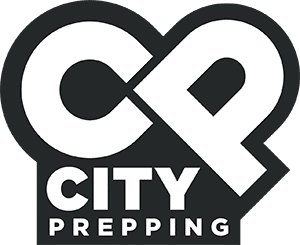


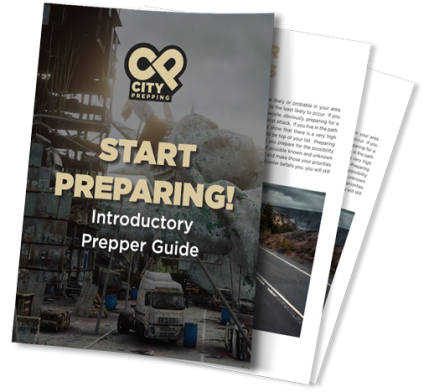

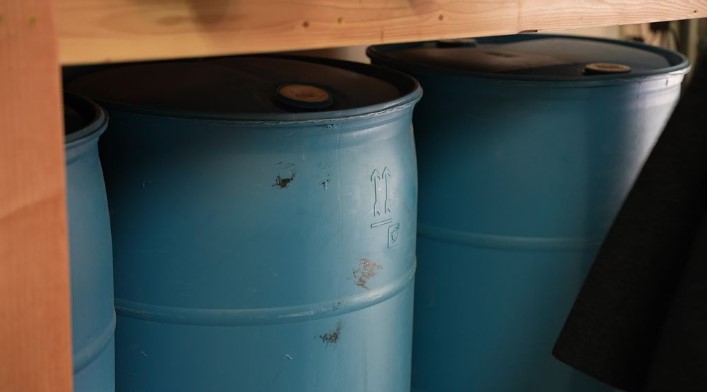
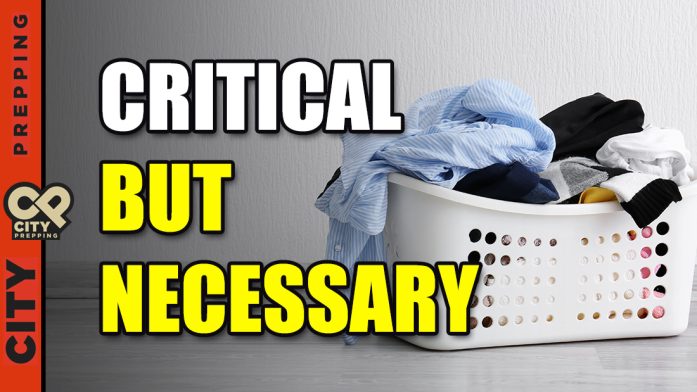
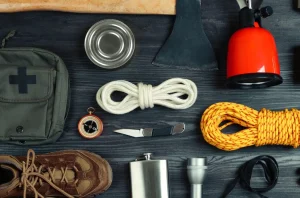
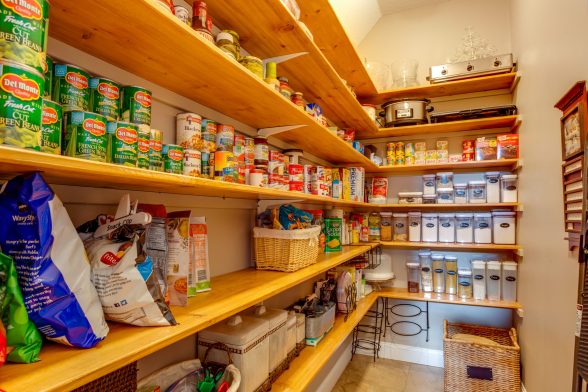
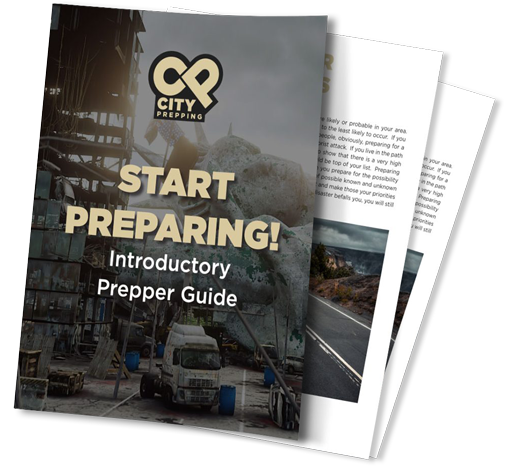
One Response
Thank you for you experience and willingness to share your knowledge. My husband and I are struggling trying to figure out do we sell and move. Do we take cash out of the bank? It is pretty daunting to know what to do. Pretty overwhelming really. Again many thanks for wanting to inform and help. Kindest regards.